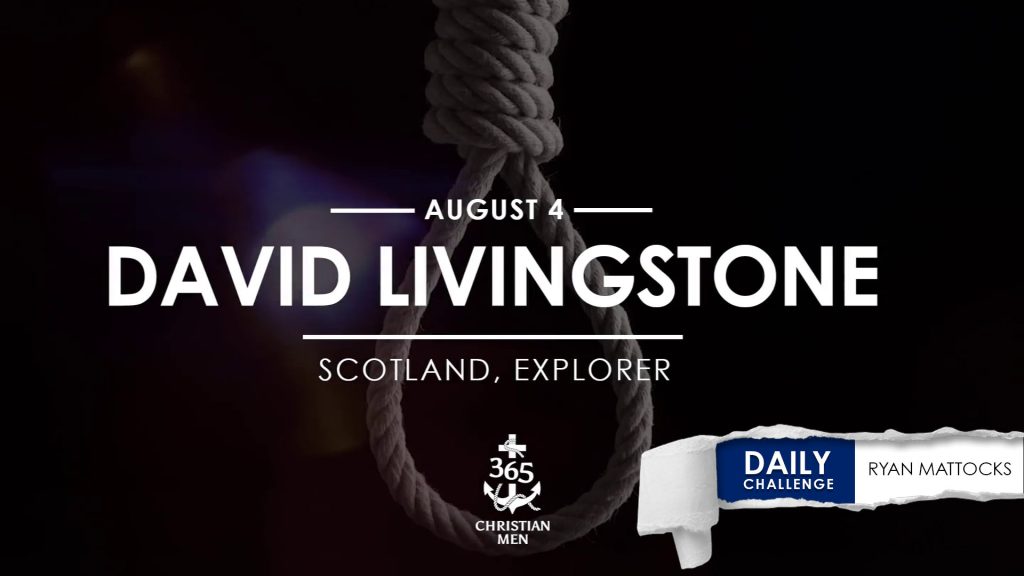August 4. David Livingstone. Livingstone was a physician, a missionary, an explorer, and a writer. He was the first European to cross the width of southern Africa. His work and his writing taught Europe about the horrors of slavery and why it must be stopped.
When confronted with injustice, do you step back or speak out?
Livingstone deplored slavery—with good reason.
On June 19, 1866, Livingstone wrote about one of his trips across Africa: “We passed a woman tied by the neck to a tree …”
She was dead. Natives explained that she had been unable to keep up with the other slaves, was going to be left behind, and the slave-trader had decided that if she wouldn’t be his property, neither would she belong to anyone else.
Livingstone wrote: “… We saw others tied up in a similar manner, and one lying in the path shot or stabbed, for she was in a pool of blood.” The slaver had become enraged when the woman could no longer march. And the man was beside himself over the money he was losing in the deal. So he killed her.
On June 26, Livingstone came upon a well-dressed African woman with many fine beads, as only wealthy women wear. She had a heavy slave-taming stick jutting out of her back, as if she could be steered by it. When she saw Livingstone, she cried out to him about the injustice done to her.
He realized the man with her was likely a slave trader. Here he was at this exact place and time. Just as if God had orchestrated the meeting. Livingstone stopped and asked the woman what had been done to her.
She said she was a near relative of Chief Chirikaloma, and she was going to see her husband when this man—her captor—chased off her maid and seized her.
But the man—not at all eager to stop and chat—claimed she was running away from the great Chief Chirikaloma, and he had captured her so that Chief Chirikaloma wouldn’t be angry.
Livingstone was certain the old man planned to sell the woman. But instead of responding with a knee-jerk reaction, in a friendly voice, he asked the man what he expected to receive from Chief Chirikaloma for capturing the woman.
The old man said, “Nothing.”
Well aware that the man’s story didn’t hold up, Livingstone gave the old man a gift of fine woven cloth to give to Chief Chirikaloma to appease him—if he was offended. Then Livingstone freed the woman and told the man, “Say that I, feeling ashamed to see one of his relatives in a slave-stick, released her and would take her on to her husband.” Perhaps God had brought Livingstone here for such a time as this.
“This was Mordecai’s reply to Esther: ‘Do you think you will escape there in the palace when all other Jews are killed? If you keep quiet at a time like this, God will deliver the Jews from some other source, but you and your relatives will die; what’s more, who can say but that God has brought you into the palace for just such a time as this?’” (Esther 4:13–14 TLB).
When confronted with injustice do you step back or speak out?
Livingstone, David. The Last Journals of David Livingstone, in Central Africa, from 1865 to His Death, Volume I (of 2), 1866–1868. Scotts Valley, CA: Create Space Independent Publishing Platform, 2017.
Jackson, Dave and Neta Jackson. Escape From the Slave Traders. Evanston, IL: Castle Rock Creative, Inc., 2016.
Story read by: Peter R Warren, https://www.peterwarrenministries.com/
Introduction read by: Daniel Carpenter
Audio production: Joel Carpenter
Editor: Teresa Crumpton, https://authorspark.org/
Project Manager: Blake Mattocks
Copyright © 2020, 365 Christian Men, LLC. All rights reserved.





